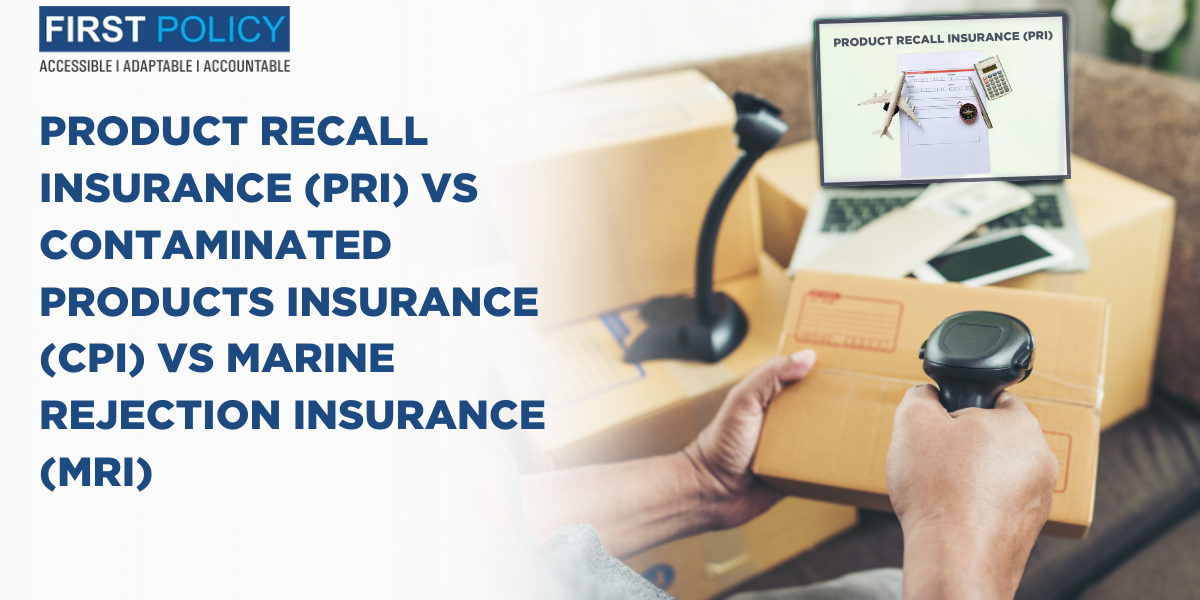
Product Recall Insurance (PRI) vs Contaminated Products Insurance (CPI) vs Marine Rejection Insurance (MRI)
These three insurances PRI, CPI and MRI, have a lot of similarities as well as differences. They are meant to cover situations where there is something wrong with a product that has to be recalled and/or safely disposed of.
PRI is meant for covering situations where the product has some defect, safety or quality concern that requires it to be withdrawn from the market. The policy typically pays for expenses related to recall such as advertising the recall, tracking and tracing of defective products, shipping, safe disposal etc. But the cost of the defective items itself may not be covered.
CPI is a much wider cover than PRI. It covers product contamination, both accidental and malicious tampering, including product extortion, which requires a recall of the product. Besides recall expenses, it can also cover loss of the product recalled as well as the loss of gross profit.
MRI provides cover to exporters against the risk of their shipments getting rejected by an overseas Government authority or designated agency due to a contaminant found in the shipment or a possibility that the subject-matter may carry organisms that may pose a health hazard in the importing country. The policy pays for the value of cargo, cost of destruction or reshipping back to the country of origin and other incidental expenses thereof.
Now coming to the significant differences between the three:
PRI and CPI are insurances where coverage is triggered when there is incidence of bodily injury or property damage (BIPD) or a threat thereof, if the products were to be consumed. However, for MRI, there is no requirement of demonstration of actual occurrence or threat of BIPD. The cover is triggered once the agency concerned rejects the cargo at the discharge port, based on its subjective satisfaction that there is a threat.
PRI and CPI can be either issued on a standalone basis or as extension of a product liability insurance policy, but MRI is usually issued as an extension to a marine cargo policy.
The MRI coverage being linked to a marine transit, the cover ceases once the cargo is cleared at port or at final destination inland in case of “cord and seal” arrangement. This is not the case with PRI and CPI which are year round coverages.
The PRI is suitable for all types of products, whereas CPI is suitable for certain types of products such as food, beverages, cosmetics and pharmaceuticals. MRI is usually given for temperature controlled products such as frozen fish, meat, seafood etc.
Note: The above comparison is drawn up based on the most common type of policy wordings. Significant differences exist between wordings of different carriers. For instance, some markets may offer wider PRI including replacement costs, business interruption, extra expenses, brand rehabilitation and consequential damages, instead of limiting to mere recall expenses only.





